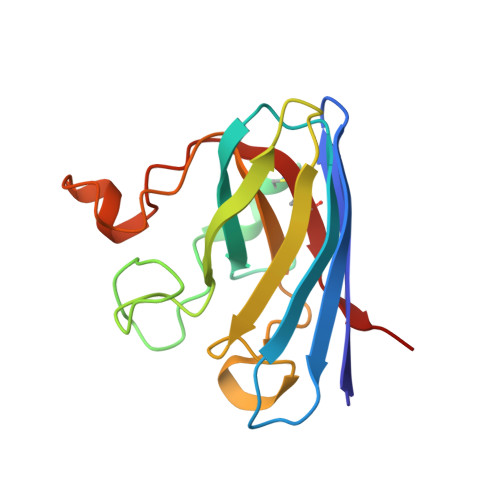Ebselen analogues delay disease onset and its course in fALS by on-target SOD-1 engagement.
Watanabe, S., Amporndanai, K., Awais, R., Latham, C., Awais, M., O'Neill, P.M., Yamanaka, K., Hasnain, S.S.(2024) Sci Rep 14: 12118-12118
- PubMed: 38802492
- DOI: https://doi.org/10.1038/s41598-024-62903-5
- Primary Citation of Related Structures:
7T8E, 7T8F, 7T8G, 7T8H - PubMed Abstract:
Amyotrophic lateral sclerosis (ALS) selectively affects motor neurons. SOD1 is the first causative gene to be identified for ALS and accounts for at least 20% of the familial (fALS) and up to 4% of sporadic (sALS) cases globally with some geographical variability. The destabilisation of the SOD1 dimer is a key driving force in fALS and sALS. Protein aggregation resulting from the destabilised SOD1 is arrested by the clinical drug ebselen and its analogues (MR6-8-2 and MR6-26-2) by redeeming the stability of the SOD1 dimer. The in vitro target engagement of these compounds is demonstrated using the bimolecular fluorescence complementation assay with protein-ligand binding directly visualised by co-crystallography in G93A SOD1. MR6-26-2 offers neuroprotection slowing disease onset of SOD1 G93A mice by approximately 15?days. It also protected neuromuscular junction from muscle denervation in SOD1 G93A mice clearly indicating functional improvement.
Organizational Affiliation:
Department of Neuroscience and Pathobiology, Research Institute of Environmental Medicine, Nagoya University, Furo-Cho, Chikusa-Ku, Nagoya, 464-8601, Japan.



















